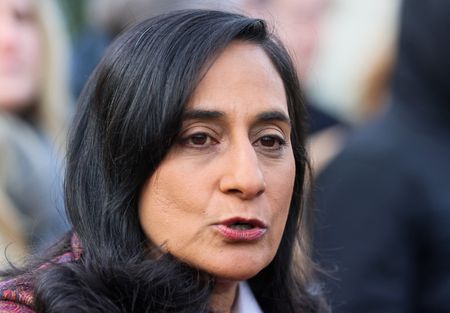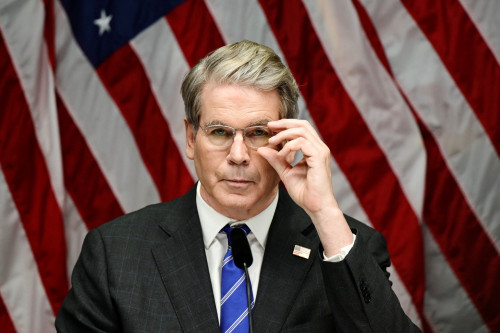By Steve Scherer
OTTAWA (Reuters) – Canada is expected to boost military spending after a government review next month, but the increase is unlikely to comfort allies facing new threats and it could further undermine the country’s international military credibility, policy analysts said.
Canada’s lagging military investments are well known, but threats have grown more serious with Russia waging war in Ukraine on the NATO alliance’s doorstep and vast areas of the Arctic becoming more accessible because of climate change.
NATO Secretary General Jens Stoltenberg warned after a visit to the Canadian Arctic last August that Russia and China were forming a strategic partnership that challenged the Western military alliance’s values and interests.
At 1.29% of GDP in 2022, Canada’s defense spending as a percentage of GDP is about the same as it was in the late 1990s, according to the North Atlantic Treaty Organization (NATO), and well below the 2% target for its members. The 2022 average spending for all of NATO was 2.58% of GDP.
Canada, a founding NATO member, is expected to pledge an increase in defense expenditure when it releases a broad assessment of military needs just before a July 11-13 NATO leaders summit in Lithuania. NATO is expected to push for even more spending during the summit.
“I’d be surprised if the defense review doesn’t disappoint,” said one former senior official in the defense department, who spoke on condition of anonymity.
In order to meet the NATO target, Canada would need to spend an additional C$13 billion and C$18 billion ($9.8-$13.6 billion) per year for five years, the parliamentary budget office estimated last year.
“We say nice things but do not invest,” said the former defense official, and allies now say: “Show us the money.”
Daniel Minden, spokesperson for Defence Minister Anita Anand, said Canada has the sixth largest defense budget in the alliance and that the country would “continue to make landmark investments to equip our Armed Forces”.
At stake is Canada’s credibility among partners as it seeks to bolster its heft internationally with a new focus on the Indo Pacific, and as it promotes itself as a preferred global supplier of resources such as critical minerals used in electric vehicles.
“Canada can’t afford to continue along the path of doing the minimum possible to sustain its military,” said Roland Paris, professor of international affairs at University of Ottawa and a former adviser to Prime Minister Justin Trudeau.
Trudeau’s Liberal government has committed more than C$1 billion ($759 million) in military assistance to Ukraine and his government this year finalized the purchase of 88 F-35 jets from Lockheed Martin Corp in a C$19 billion project. It has also said it will spend C$38.6 billion over 20 years to modernize the North American Aerospace Defense Command (NORAD).
But a leaked Pentagon assessment obtained and reported by the Washington Post in April said Trudeau had told NATO officials Canada would never meet the alliance’s target.
Trudeau has not commented directly on the news report, but when asked about it in April, he said Canada would “continue to invest” and would be a reliable partner.
A senior diplomat from a NATO country, who spoke on condition of anonymity, said European nations in particular were unhappy with Canada’s failure to meet the expenditure target.
“For Europeans, this is an existential issue. Russia is close by. But Canada is across the Atlantic Ocean and this is not pressing. And you don’t get elected in Canada by promising to increase defense spending.”
The cost of living, affordable housing and healthcare tend to be issues of most concern to the Canadian electorate.
‘FORMER HIGH SCHOOL HOCKEY STAR’
Canada’s exclusion from AUKUS, a security pact between Australia, the UK and the U.S. in 2021 to help Australia acquire nuclear-powered submarines, was an indication that allies have shrinking regard for Canada’s armed forces, policy analysts said.
It was “a signal from countries saying you are not serious,” said Christyn Cianfarani President and CEO of the Canadian Association of Defence and Security Industries (CADSI), the country’s main military industry lobby. The move is allies telling Canada: “We don’t want to hear the words anymore. We want to see money.”
Canada is a member of the Five Eyes intelligence sharing pact with all three countries, and while it is not currently looking for nuclear submarines, it has started the process to replace its own conventional fleet.
David Perry, President of the Canadian Global Affairs Institute, also said it was time for Canada to step up.
“We’re like the 40ish-year-old, former high school hockey star who’s cruising on memories of the good times, while everybody else has got a job and kids and a house.”
($1 = 1.3249 Canadian dollars)
(Reporting by Steve Scherer; Editing by Denny Thomas and Grant McCool)






